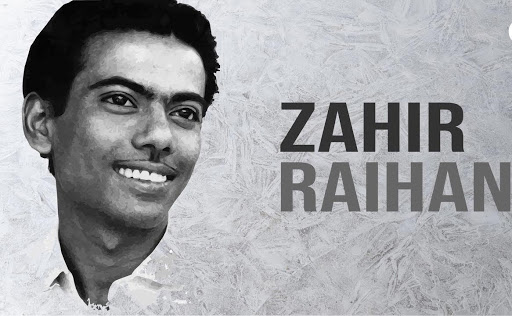Zahir Raihan is a proverbial man in Bengali films.Zahir Raihan was a Bangladeshi novelist, writer and filmmaker. He is most notable for his documentary Stop Genocide (1971), made during the Bangladesh Liberation War. He was posthumously awarded Ekushey Padak in 1977 and Independence Day Award in 1992 by the Government of Bangladesh.
He was born on this day in 1935 in Feni, Noakhali. Different cultural and social organizations will celebrate the day through various events. These include discussions on the life and work of Zahir Raihan, documentaries and film exhibitions made by him.
Filmmaker. Zahir Raihan was one of the first group of 10 to break Section 144 on February 21, 1952. He was also directly involved in the mass uprising of 1969. At that time he was also active in various programs with the camera in hand.
He first worked with Pakistani filmmaker Zardari in 1958. The first picture is in Urdu ‘Jago Hua Sabera’. In 1964, he made Pakistan’s first color film, Sangam. His first cinemascope film ‘Bahana’ was released in 1975. In ’71, he made the black documentary ‘Stop Genocide‘.
Zahir Raihan’s other films are ‘Sonar Kajal’, ‘Kacher Deyal’, ‘Anwara’, ‘Behula’, ‘Jwalate Suruj Niche’ and ‘Jeevan To Neya’. The work of ‘Let There Be Light’ could not be completed. Published novels include ‘Last Afternoon Girl’, ‘For a Thousand Years’, ‘Another Falgun’, ‘Ice River’ and ‘How Long’. 
In recognition of his outstanding contribution in these fields, he has been awarded numerous prizes and honors, including the ‘Nigar’ Film Award, the Adamji Literary Award and the Posthumous Literary Award of the Bangla Academy. On January 30, 1972, Zahirr Raihan went missing in search of Shahidullah Kaiser, a veteran journalist and intellectual. It was later learned that he was martyred in Mirpur by the anti-liberation forces. His body was not found.



